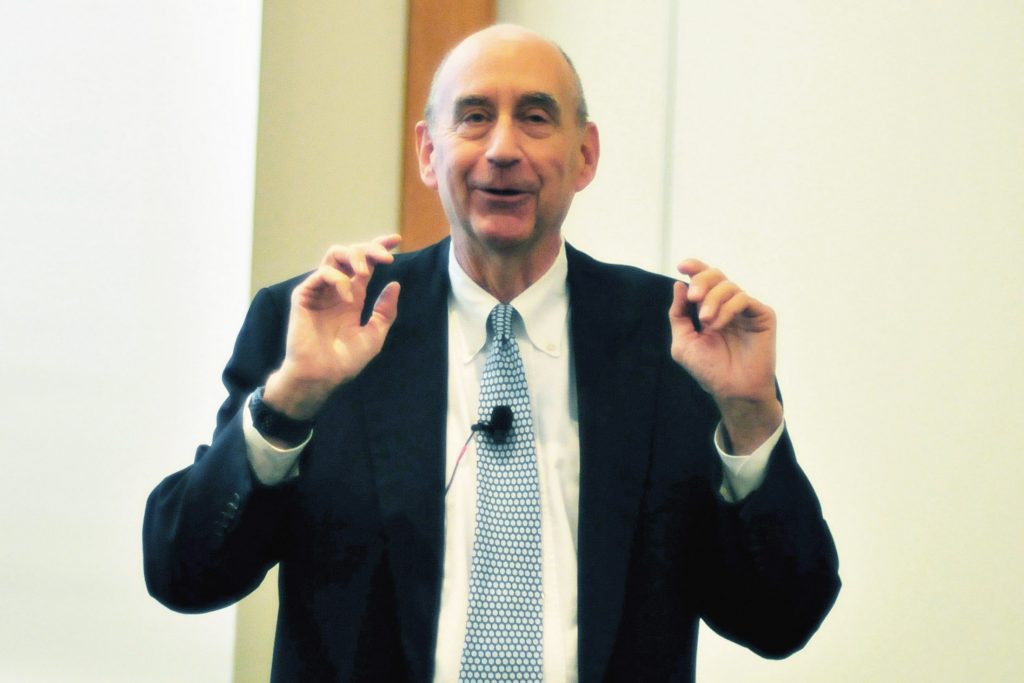Making no secret of his concerns about the current administration during an appearance at BC Law on October 21, Neil Eggleston, White House Counsel to President Obama from May 2014 to January 2017, discussed what it means to take the Oath of Office, its significance in the Constitution, and whether it gives a president enhanced privileges or acts as a restraint on his power.
Although he referenced the Watergate hearings, the Clinton impeachment, and Iran/Contra affair several times throughout his talk to help contextualize current events, Eggleston emphasized that Washington is facing unprecedented legal questions. He expressed disapproval of the current president’s behavior and surprise at the White House counsel’s willingness to serve the man rather than the office.
Eggleston said he cannot imagine writing a letter like the one penned by White House Counsel Pat Cipollone October 8, stating that Trump would not cooperate in the House of Representatives’ impeachment inquiry. The fact that the president is unhappy about the process the House is using is unsurprising, Eggleston said, “because every criminal defendant sitting in jail doesn’t like the process that got them there.” There is no legal power or precedent for White House Counsel to act as a surrogate expressing that unhappiness or publicly asking witnesses not to testify, he added.
Eggleston also voiced concern about procedures in the administration’s law enforcement offices. For example, the normal procedure to disseminate information to Congress through the Inspector General, Director of National Intelligence, and Office of Legal Counsel was not followed with the whistleblower complaint that triggered the Trump impeachment inquiry.
On other legal fronts, Eggleston argued that the Office of Legal Counsel, which is within the Department of Justice, has a duty to look at settled law when considering cases rather than to cherry-pick them to support an agenda. This administration is doing the latter, he said, but there can be consequences. When an administration begins to lose deference, he explained, it becomes easier for courts to rule against a president; a presumption of regularity disappears.
Asked about Senate Majority Leader Mitch McConnell’s role if impeachment passes to the Senate, Eggleston pointed to the leader’s disregard for norms when it comes to political expediency. Giving the example of McConnell’s having prevented a hearing to Obama’s Supreme Court candidate Merrick Garland in 2016, Eggleston decried the role of partisanship in current events and even in the exercise of the law.
Can norms be restored? Eggleston predicted that if the current administration ends either by the president’s removal through impeachment or defeat in the 2020 election, norms may be restored. However, he said, if Trump serves another full term, the country’s norms may be so far gone that they may be lost.
Eggleston’s talk was sponsored by BC Law’s American Constitution Society and the law firm Kirkland & Ellis.
Tatiana-Rose Becker ’21 contributed to this report.


